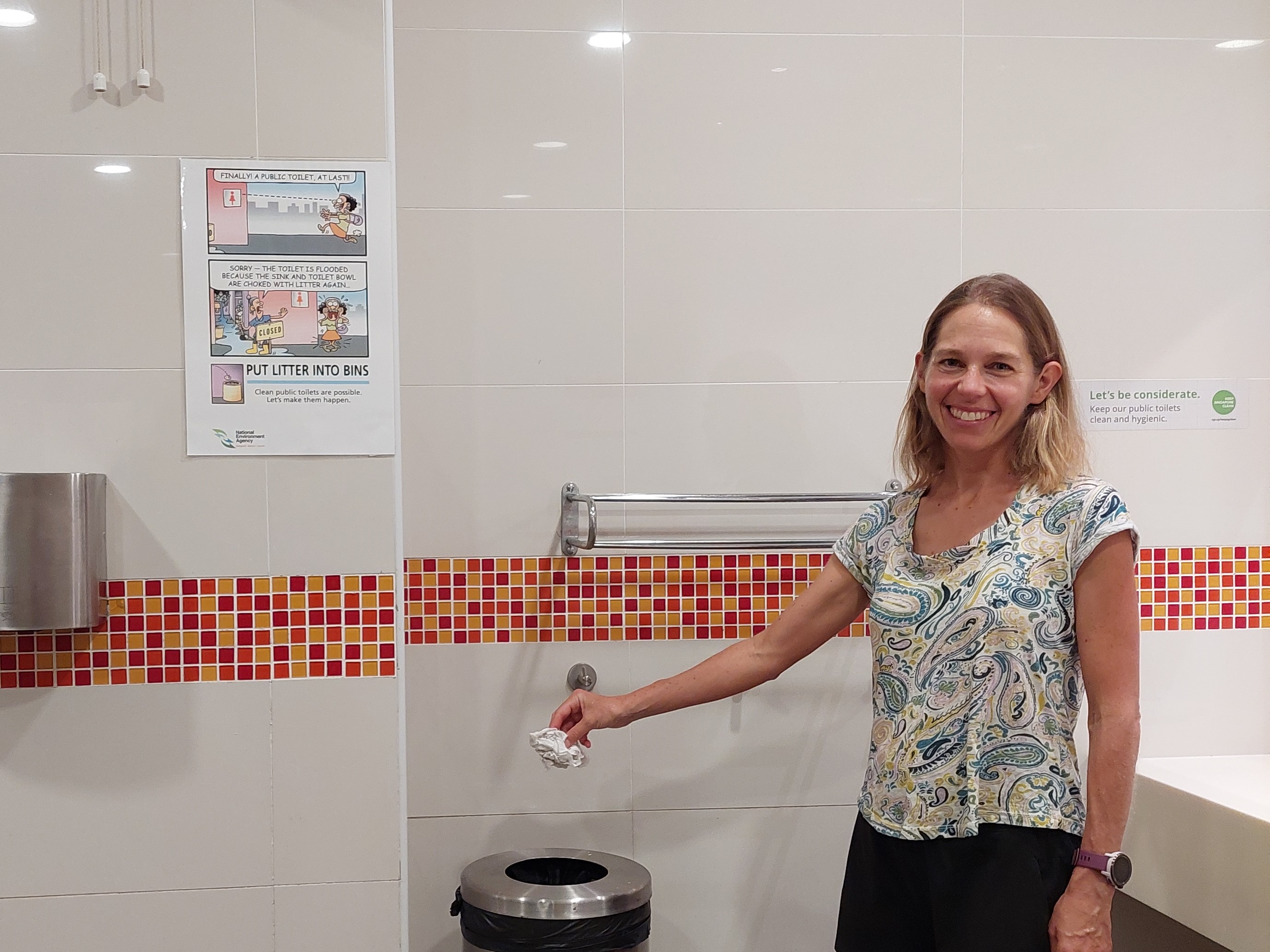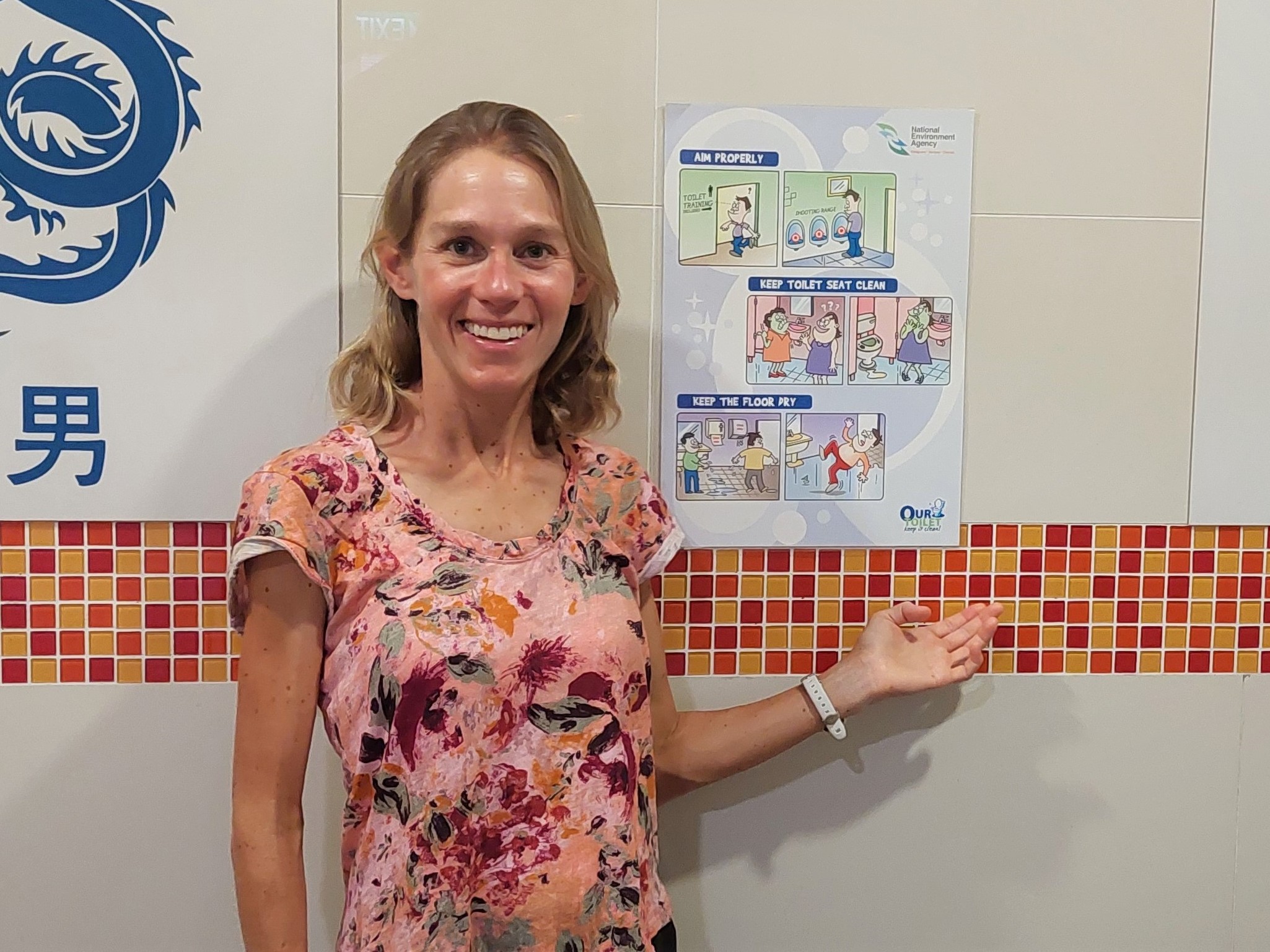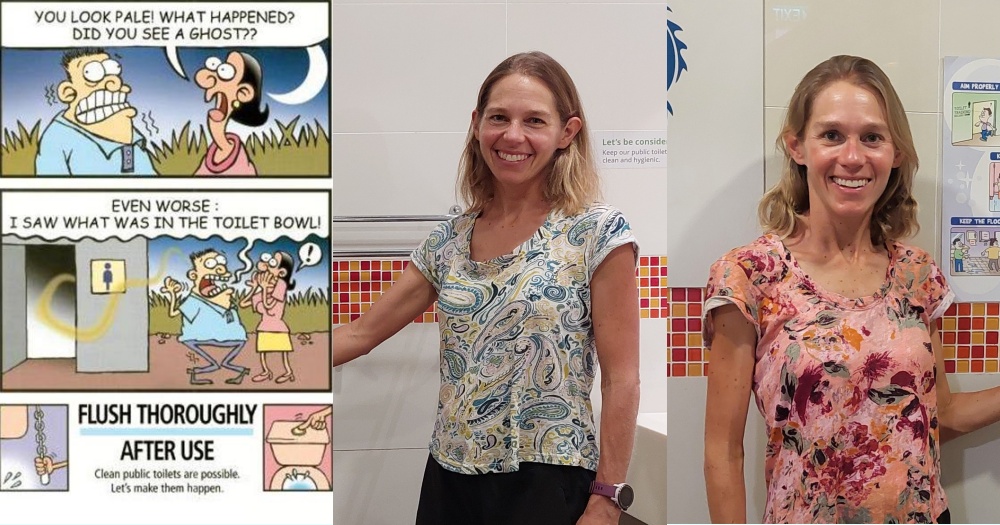Follow us on Telegram for the latest updates: https://t.me/mothershipsg
A pair of linguistics researchers from the U.S. found Singapore's cleanliness campaign posters so interesting that it became the topic of their research paper.
The researchers, who are also twin sisters, co-led a study and published a paper titled "Comics and humor as a mode of government communication on public hygiene posters in Singapore", where they provided an in-depth analysis of posters from the Singapore government's "Keep Public Toilets Clean" campaign.
Humour in campaigns help encourage proper social etiquette
"The humour in these Singaporean public health campaigns frames the message positively and may work to encourage individuals to exert proper social etiquette," said one of the researchers, Keri Matwick, who is from Nanyang Technological University (NTU).
Her co-author and sister, Kelsi Matwick, is an adjunct lecturer at the University of Florida.
 Keri Matwick. Photo via NTU Singapore.
Keri Matwick. Photo via NTU Singapore.
 Kelsi Matwick. Photo via NTU Singapore.
Kelsi Matwick. Photo via NTU Singapore.
The researchers said using a comic strip helped to create a "made-up world" which made unpleasant topics easier to discuss.
It also helped make the message more relatable and memorable to all ages of the public, they added.
"Research has shown that humour can improve learning, attention span, and retention of a message. The brevity of comics’ messages can grab viewers’ attention and increase the retention of its message," explained Kelsi.
"Funny and instructional"
The posters, which are commonly seen in public restrooms all over Singapore, are designed by local cartoonist Lee Chee Chew, who also has a comic series called "Chew On It".
One of the posters they analysed, "Use the Hand Dryer or Hand Towels", shows a man flicking water onto the floor, which later causes him to slip and fall.
 via NEA.
via NEA.
On the poster, Keri said: "Both the language and semiotics of the comic work together to make it funny and instructional."
"The lesson of the comic is explicit, with the line saying, for example: Clean public toilets are possible. By linking the image of the flicker to this comic, connections to discourse of social irresponsibility and disgrace are made. The underlying message is that following social rules in public washrooms is an intelligent way to act," added Kelsi.
Another poster, "Flush Thoroughly After Use", shows a man who was spooked by what he saw in the toilet bowl, with an explicit message reminding the reader to flush the toilet.
 via NEA.
via NEA.
"This comic uses visual cues to indicate the characters’ facial expressions of emotion. For example, eyes popping out and a slack jaw indicate (the woman's) surprise, while eyes popping out combined with raised eyebrows and clenched teeth convey (the man's) fear," Kelsi analysed.
"Avoiding direct reference to the fecal matter helps create visual, aural, and olfactory distance between the viewer and the implied waste. What is explicit is the social etiquette: FLUSH THOROUGHLY AFTER USE", the authors elaborated in their paper.
They said that while the Singapore government routinely intervenes in cleanliness and public hygiene, the use of this "design strategy" helps the campaign stand out to an "already campaign-familiar Singaporean audience".
Top photos via NEA and NTU Singapore
If you like what you read, follow us on Facebook, Instagram, Twitter and Telegram to get the latest updates.
